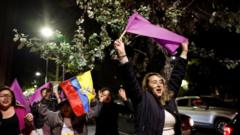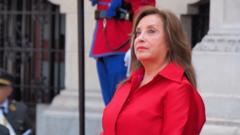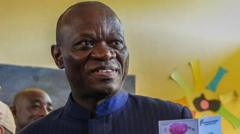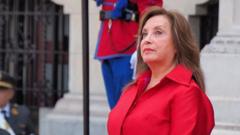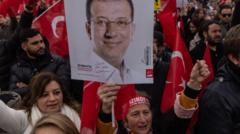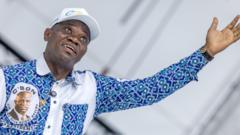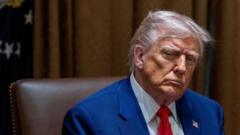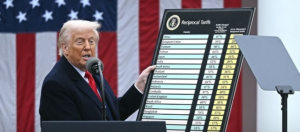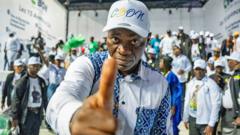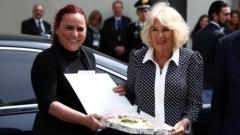South Korea has officially announced that it will hold a snap presidential election on June 3, following the impeachment and removal of Yoon Suk Yeol. This significant political event has raised questions of leadership and stability in the nation, with opposition leader Lee Jae-myung emerging as a potential frontrunner. The election will be crucial as the country navigates external challenges under interim leadership.
Snap Election Announced in South Korea Following Presidential Impeachment

Snap Election Announced in South Korea Following Presidential Impeachment
South Korea will conduct a presidential election on June 3, addressing the political vacuum left by the impeachment of Yoon Suk Yeol.
South Korea's political landscape is poised for transformation as the Constitutional Court removed President Yoon Suk Yeol from office due to his controversial attempt to impose martial law. The decision came after a unanimous impeachment ruling from the National Assembly, leading to a swift response from the government to prepare for a new presidential election.
The snap election, mandated by law to take place within 60 days of Yoon's dismissal, is set for June 3. The day has been designated a national holiday to increase voter participation. Political parties are now gearing up for primary elections to select their candidates, with the official campaign period commencing on May 12.
As the nation prepares for this important political change, the interim leadership of Prime Minister Han Duck-soo faces considerable challenges, including economic pressures exacerbated by foreign tariffs. The coming months will be crucial in determining the future direction of South Korea's government and its democracy.
The snap election, mandated by law to take place within 60 days of Yoon's dismissal, is set for June 3. The day has been designated a national holiday to increase voter participation. Political parties are now gearing up for primary elections to select their candidates, with the official campaign period commencing on May 12.
As the nation prepares for this important political change, the interim leadership of Prime Minister Han Duck-soo faces considerable challenges, including economic pressures exacerbated by foreign tariffs. The coming months will be crucial in determining the future direction of South Korea's government and its democracy.






